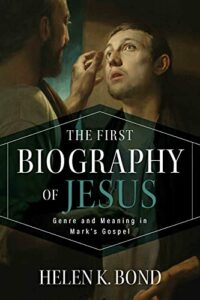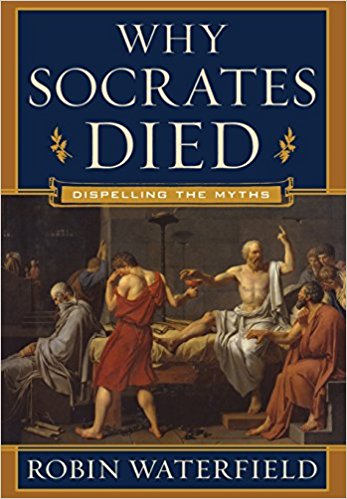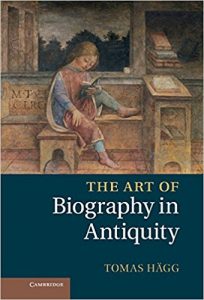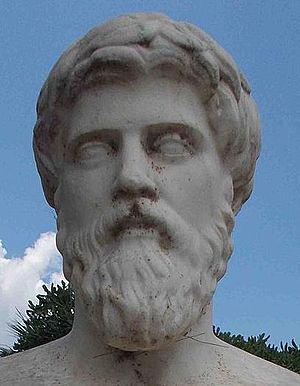Continuing a discussion of M. David Litwa’s How the Gospels Became History: Jesus and Mediterranean Myths . . .
Allow me to round off with a few tidbits from Litwa’s discussion of the appearances of prophecies in history and biography type narratives. We have covered much of the main idea in the previous post on dreams. I’ll begin here with Litwa’s conclusion so we can, I hope, think the argument through with some attention to detail.
Don’t forget that prophecy-driven narratives were probably even more common in ancient fiction. See
Prophecy Driven Narratives in Ancient Fiction. Litwa, however, focuses on prophecies found in historical or biographical literature and concludes the ancient reader would have associated prophecy with historical-type literature. He does not discuss (as far as I am aware at this stage) the reasons audiences would have been at least as likely to have associated prophecy with fictional narratives.
By telling the stories of great heroes as mythic historiography, ancient authors made their stories recognizable and rhetorically effective in the minds of their audiences. As we have seen, the evangelists were no exception. They used the same mythistorical patterns to highlight the transcendent greatness of their hero, even while he was a tiny baby. Yet their practices best resemble those of ancient historians who wrote historical accounts reporting supposedly real events. (pp. 62 f)
Here is how Litwa compares the “mythistorical patterns” in Greco-Roman historical or biographical literature and in the gospels.
We start with Pythagoras
| Mnesarchus, father of Pythagoras, learned from Apollo that his wife “would bring forth a son surpassing all who previously lived in beauty and wisdom and who would be the greatest benefit to the human race.” (Iamblichus, Life) |
An angel tells Mary, “You will conceive in your womb and bear a son, and you will name him Jesus. He will be great, and will be called the son of the Most High” (Luke 1:31-32). |
Now that certainly sounds like the story of a divine prophecy of the birth of Pythagoras was told in a manner very similar to that in the gospels about the birth of Jesus.
But I am never satisfied with reading second and third-hand summaries and always crave to check the original as closely as possible, either in the Greek or a reputable translation.
| IT is said, therefore, that Ancaeus who dwelt in Samos in Cephallenia, was begot by Jupiter, whether he derived the fame of such an honorable descent through virtue, or through a certain greatness of soul. He surpassed, however, the rest of the Cephallenians in wisdom and renown.
[Ancaeus founds a new colony when commanded to do so by a prophet of Apollo.] |
Unlike ancient fiction, historical fiction (including Luke-Acts), and certain popular historical works that were ridiculed by satirists and serious historians, notice that Iamblichus, in relating the traditions about descents of famous persons from gods, distances himself from them. He does not write of them as straightforward facts but begins, “it is said that…”. Iamblichus attempts an explanation that might have given rise to the stories.
Of course, we have no comparable distancing or critical assessment of similar narratives in the gospels. |
| It is said, therefore, that Mnesarchus and Pythais, who were the parents of Pythagoras, descended from the family and alliance of this Ancaeus, who founded the colony. In consequence, however, of this nobility of birth being celebrated by the citizens, a certain Samian poet says, that Pythagoras was the son of Apollo. For thus he sings,
Pythais fairest of the Samian tribe,
Bore from th’ embraces of the God of day
Renown’d Pythagoras, the friend of Jove.
|
Iamblchus continues to express his distancing from the information he is relaying. He makes it clear that he is writing what ‘is said’ by others.
The direct claim that Pythagoras was born from Apollo comes from a poet who is evidently looking back on the life and reputation of Pythagoras. Again, we have Iamblichus’s personal distancing from the claim itself. |
| It is worth while, however, to relate how this report became so prevalent. The Pythian oracle [= oracle of Apollo] then had predicted to this Mnesarchus . . . that his wife was now pregnant, and would bring forth a son surpassing in beauty and wisdom all that ever lived, and who would be of the greatest advantage to the human race in every thing pertaining to the life of man. . . . [W]e must not regard the assertions of Epimenides, Eudoxus, and Xenocrates, who suspect that Apollo at that time, becoming connected with Parthenis, and causing her to be pregnant from not being so, had in consequence of this predicted concerning Pythagoras, by the Delphic prophet: for this is by no means to be admitted.* |
Iamblichus wants to bring readers along with possible explanations for the reputation of Pythagoras being a son of Apollo. Here we encounter the prophecy that Litwa has compared with Luke 1:31-32 but notice the quite different contexts and functions of the two prophecies. One is told as fact; the other is told as a tradition that calls for explanation
Iamblichus rejects outright that such a story can possibly be literally true. Yes, some writers have written of it in a way that sounds like a god had sexual intercourse with a human but “this is by no means to be admitted.” |
| Indeed, no one can doubt that the soul of Pythagoras was sent to mankind from the empire of Apollo, either being an attendant on the God, or co-arranged with him in some other more familiar way: for this may be inferred both from his birth, and the all-various wisdom of his soul. And thus much concerning the nativity of Pythagoras. |
* The translator (Thomas Taylor) adds a lengthy explanation of the understanding behind Iamblichus’s words. In brief, the gods themselves were pure (impassive and pure) and as such could have no direct dealings with humans who were the opposite: “passive and impure” (the terms reflect their meanings in the year 1818). But there can be no vacuum so other beings must populate the distance between gods and humans. These other beings also come from the gods: they are “daemons”, “heroes”, “nymphs”, “and the like”. The lowest powers of these beings have compassion for the corporeal world: daemons for humans, nymphs for trees and other forms of nature, and so forth. Through such beings a spirit of the divinity can be imparted to a human, as at birth. In the same way Plutarch and Apuleius explained the “divine origin of Plato”. |
After reading the prophecy that Pythagoras would be born a son of Apollo in Iamblichus I find less reason to maintain interest in Litwa’s comparison of it with the angel’s prophecy about Jesus to Mary.
I am not saying that Litwa’s discussion is not worth reading. I think it is given the numbers of detailed citations, sources, comparisons of Greco-Roman literature with the gospels. So many more such comparisons than I was aware of keep emerging page after page. Some of them are closer to the gospels than others, but all are worth following up. Our best education can be in reading carefully and following up the sources for oneself and making one’s own assessments — always being ready to revise them in the light of more reading and more counter-arguments.
My view is that Litwa has failed to qualify his case adequately, overlooking the same tropes in nonhistorical works and also in failing to give enough attention to the different qualities or characteristics of different historians.
Other stories of prophecies (Nigidius Figulus, the father of the one to become Augustus Caesar, Simeon in the temple) we have covered in the previous post. But one we have not examined yet is the prophecy concerning Heracles.
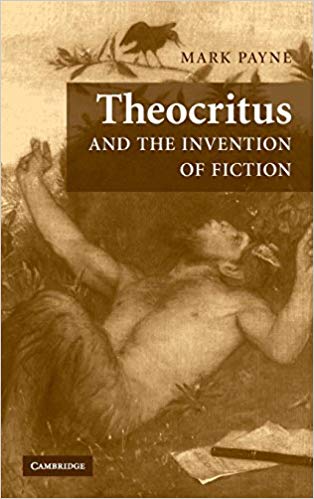 Here’s another: Heracles
Here’s another: Heracles
Litwa cites two sources for the prophecy associated with the birth of Heracles and the promise of great honour to crown his mother, comparing the prophecy of Jesus’ greatness and the great honour to be bestowed on Mary. Those two sources are the poets Pindar and Theocritus.
They each recreate the story of how the newborn Heracles seized and killed two snakes that had been sent by a jealous goddess, Hera, into his crib to kill him. (Hera was wife of Zeus who had fathered Heracles to a mortal.) When the mother and father of Heracles see what he is done they are, as one would expect, utterly astonished. In Pindar’s version Heracle’s father asks the famous aged prophet Teiresias what this event means for the future of his son. Tieresas answers:
But [Amphitryon] called on his neighbor, the great prophet of Zeus on high,
Teiresias, the strict seer; who told before him and all the company his son’s encounters to be,
all the beasts he must slay by land,
all the beasts of the sea, brutes without right or wrong;
likewise the man walking, crossed
with conceit in hatefulness,
he must give over to death;
and how, when the gods in the plain of Phlegra met the Giants in battle,
under the storm of his shafts these also must drag their bright hair in the dust.
(Pindar, Nemean Ode 1)
Continue reading “Review, part 6b. Litwa on “Mythistorical” Prophecies, Biblical and Greco-Roman”
Like this:
Like Loading...
